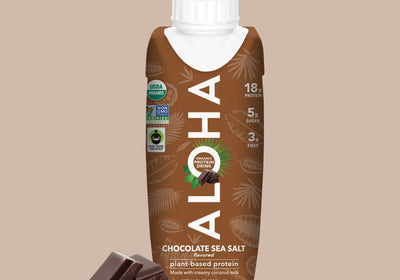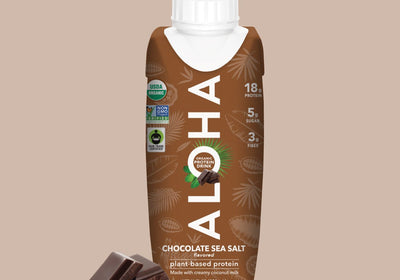Sunflower oil is available in several varieties, each with distinct fatty acid compositions influencing their health benefits. High-oleic sunflower oil, for instance, contains higher levels of monounsaturated fats, which are heart-healthy and promote good cholesterol levels. Linoleic sunflower oil, on the other hand, is rich in polyunsaturated fats, which can help reduce inflammation. The extraction method also matters, with cold-pressed or expeller-pressed oils generally considered healthier than refined versions due to fewer chemical processes involved.
What Are The Different Types Of Sunflower Oil?
High-Oleic Sunflower Oil
High-oleic sunflower oil is prized for its high concentration of oleic acid, a heart-healthy monounsaturated fat that helps lower harmful cholesterol levels while promoting good cholesterol. Its stability under high temperatures makes it an excellent choice for cooking methods like frying, roasting, and baking, as it resists oxidation and prevents the formation of harmful compounds. Additionally, its longer shelf life than other oils makes it a popular option for food production and home use. You'll often find high-oleic sunflower oil used in healthier snack products and packaged goods that prioritize both nutrition and longevity. Its neutral taste also makes it versatile in various culinary applications.
Linoleic Sunflower Oil
Linoleic sunflower oil is rich in omega-6 polyunsaturated fats, making it a popular choice for cold applications like salad dressings, dips, and sauces. While it provides essential fatty acids, a diet too heavy in omega-6 without enough omega-3 can contribute to inflammation and related health concerns. Despite this, linoleic sunflower oil offers skin health benefits due to its abundant vitamin E content, which helps nourish and protect the skin. However, it is more sensitive to heat, so it is not recommended for high-temperature cooking like frying or baking. Its use is best reserved for dishes that don't require heat, allowing its nutritional properties to remain intact.
Mid-Oleic Sunflower Oil
Mid-oleic sunflower oil balances monounsaturated and polyunsaturated fats, offering moderate oleic acid. This versatile composition suits various cooking methods, including high-temperature frying and low-temperature salad dressings. Its stability at higher heat means it can be used for frying without breaking down easily, yet it also works well in cold dishes due to its balanced flavor profile. Mid-oleic sunflower oil is often chosen as a middle ground between the health benefits of high-oleic oil and the distinct flavor characteristics of linoleic oil. Its versatility makes it popular for home kitchens and commercial food production.
What Are The Health Benefits Of Sunflower Oil?
Supports Heart Health
High-oleic sunflower oil is rich in monounsaturated fats, which are known for their ability to lower LDL (bad cholesterol) while raising HDL (good cholesterol). This balanced cholesterol ratio significantly improves heart health and reduces the risk of cardiovascular issues, such as heart disease and stroke. Replacing saturated fats with high-oleic sunflower oil can promote better heart function and circulation. Regular use in cooking or salads can be a simple but impactful step toward long-term cardiovascular well-being. Over time, this oil's heart-friendly properties can make a meaningful difference in maintaining a healthy lifestyle.
Rich In Antioxidants
Sunflower oil is a potent source of vitamin E, a powerful antioxidant that protects the body’s cells from oxidative stress and damage caused by free radicals. This antioxidant action helps slow the aging process and reduces the risk of diseases linked to cell damage, such as cancer and heart disease. Vitamin E also strengthens immune function, helping the body avoid infections and illnesses. Additionally, it promotes skin health, contributing to a smoother, more youthful complexion. By incorporating sunflower oil into your diet, you benefit from a valuable source of antioxidants that support overall health.
Anti-Inflammatory Properties
The high-oleic variety of sunflower oil is known for its anti-inflammatory effects, which can help reduce chronic inflammation. Chronic inflammation is associated with the development of several serious conditions, including heart disease, diabetes, and arthritis. The monounsaturated fats in sunflower oil help regulate and manage the body’s inflammatory response, reducing the risk of these diseases. Incorporating sunflower oil into a balanced diet can improve overall health by minimizing inflammation. It is used in moderation and offers a natural way to support the body’s efforts to maintain a healthy inflammatory balance.
Skin Health Benefits
Sunflower oil significantly benefits skin health, whether consumed or applied topically. Its rich vitamin E content helps to deeply moisturize and nourish the skin, making it ideal for treating dry or sensitive skin conditions. When applied topically, sunflower oil forms a protective layer on the skin, locking in moisture and shielding the skin from environmental factors like pollution and UV rays. The oil's ability to soothe and hydrate the skin makes it a popular choice in natural skincare products. Regular use promotes a radiant, healthy complexion, enhancing the skin's appearance and health.

 collection header image
collection header image
 collection header image
collection header image




